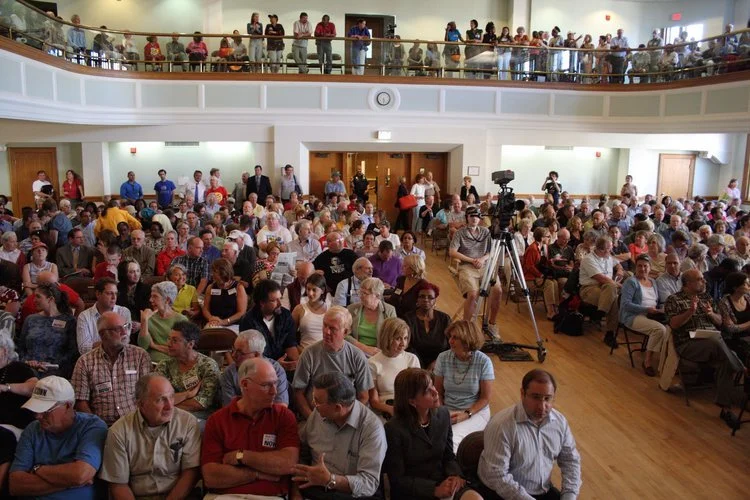Chuck discusses housing with Cullum Clark, director of the Economic Growth Initiative at the George W. Bush Institute. They talk about why there is so much resistance to new development and ways that officials and advocates could engage with the public to reduce that resistance.
Read MoreLocal government is supposed to be the highest form of collaboration, but it doesn’t always feel that way. Too often, city rules favor opponents of change, meaning one dissenting voice can doom a project. However, Jersey City demonstrates how cities can increase collaboration by adopting an iterative approach to city planning.
Read MoreThe Strong Towns approach to housing has some obvious differences with NIMBYs, but what about the YIMBY movement?
Read MoreResidents of Douglas Park in Vancouver have blocked the expansion of a local day care, citing it as a threat to the residential character of the neighborhood.
Read MoreWhat exactly is “by right” development, and how might it not match what’s actually built in your community?
Read MoreIt’s not difficult to have good urban design, the kind that respects neighbors and the neighborhoods they live in. It’s actually a lot less work than the processes we use to administer the suburban zoning codes we have today.
Read MoreDiscourse about affordable housing is dominated by a handful of extremely unrepresentative places, and the solutions that might be applicable in those places don't translate in the rest of the U.S.
Read MoreSuburbia was an experiment—an experiment in the service of building lots of housing very quickly.
Read MoreYou should be wary of anyone who claims to speak for “the community” or “the public,” especially when it’s in lieu of telling you who will benefit from the actions they support.
Read MoreThe environmental groups suing Minneapolis to block implementation of its groundbreaking 2040 Plan have a limited understanding of environmentalism, but a keen grasp of how to slow down policy reform.
Read MoreThis week’s Upzoned episode reflects on how the nuances of housing policy don’t lend themselves to broad stereotypes.
Read MoreWhat if we could get back large buildings hosting businesses at a hyperlocal scale—and what if that actually helped reduce the sentiment we call NIMBYism?
Read MorePerceived threats to a home's value often prompt homeowners to shut down any discussion about neighborhood changes. But eliminating opportunities for such reactions isn’t helpful, either.
Read MoreNIMBYs are responding to a set of very rational incentives. That presents a challenge for those of us who hope to alter the course of the Suburban Experiment.
Read MoreThis document shows just how much our arcane land-use regulations prohibit neighborhoods from developing organically and un-self-consciously.
Read MoreEven people who know the historic benefits of duplexes (and the like) can be wary of re-legalizing them. We need to understand why if we want to effectively promote missing middle housing.
Read MoreIt’s no wonder that some people oppose new housing when the housing and infrastructure projects they see are disruptive construction work that drags on for years.
Read MoreMany zoning reform efforts shift power up, from municipalities to the state level. What if, instead, we shifted them downward, to the neighbors of proposed developments?
Read MorePlano’s first comprehensive plan in 30 years contained good faith efforts to address the city’s looming financial crisis. The city council just scrapped it, reverting to the status quo development approach that caused the crisis to begin with.
Read MoreSome YIMBYs don’t like Strong Towns and claim we are anti-development NIMBY. Yet, NIMBYs hate us because we insist neighborhood evolve, adapt, and change. What’s going on here?
Read More



















